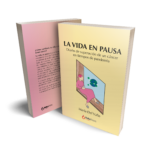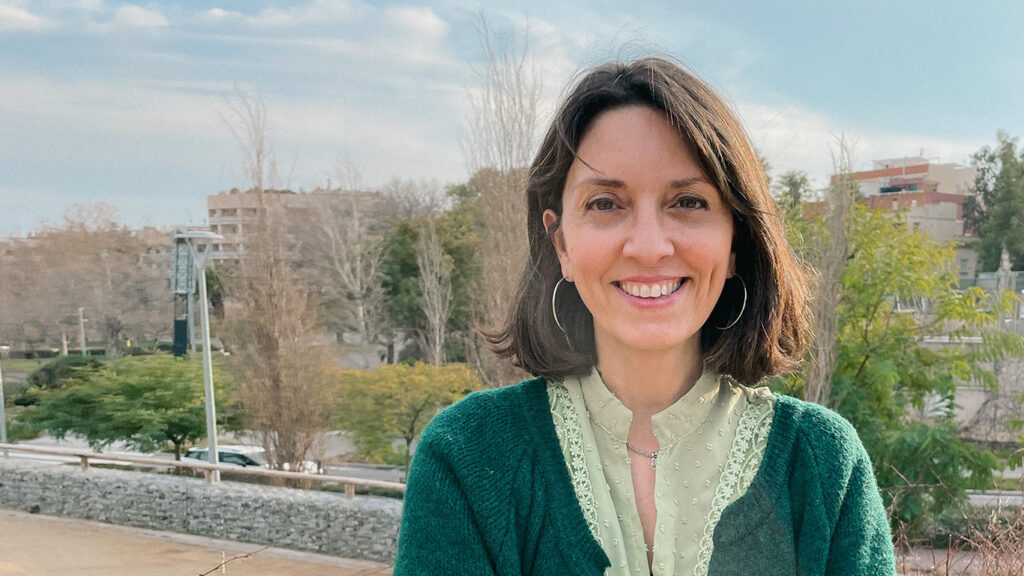At the end of 2019, Maria was diagnosed with breast cancer and at that moment her world stopped. The news coincided with her 50th anniversary, and after the initial shock, as she recounts, she “picked up all the pieces she had broken into and created an acceptable version of herself to deal with cancer.”
Now Maria del Valle’s experience with cancer has become a book entitled “La vida en pausa” where she explains her process without artifice or taboos. The book aims to help other people by telling her story clearly and directly, since, as she explains, what helped her the most was talking to other people who were going through the same and being able to share experiences.
The book also wants to help by giving part of the benefits of it to biomedical research. During the book presentation, María met Dr. Catalina Falo, a researcher and oncologist at the Bellvitge Biomedical Research Institute (IDIBELL) and the Catalan Institute of Oncology (ICO). The doctor told her about the research they were doing on new specific treatments for each type of breast cancer, so Maria decided to donate the profits of the book to this project. “Research is the most powerful tool we have to fight cancer and to save lives -declares the author of the book-. We must invest in research to promote prevention and find new more effective treatments without side effects“.
La vida en pausa
 “La vida en pausa” began as a diary where Maria wrote down the symptoms she had during the week so that she could discuss them with the oncologist during the visit. However, her vocation as a writer and journalist meant that this diary gradually expanded and became what it is now, a book that explains day-to-day life with cancer: the sessions at the Hospital, the physical changes, the emotional management and the search for strength and motivation to face it all.
“La vida en pausa” began as a diary where Maria wrote down the symptoms she had during the week so that she could discuss them with the oncologist during the visit. However, her vocation as a writer and journalist meant that this diary gradually expanded and became what it is now, a book that explains day-to-day life with cancer: the sessions at the Hospital, the physical changes, the emotional management and the search for strength and motivation to face it all.
In the book, María speaks openly about the entire process. From her initial anger over a diagnosis that turns her into a cancer patient, where language is harsher, and emotions are lived to the surface. She goes through the entire process of treatments, tests, and medical visits that make her accept the disease.
However, she did not count on an unforeseen setback. As she begins to gain control, a virus causes a pandemic that collapses the healthcare system. In the book, she explains how the lockdown allowed her to spend more time with her family, but also how the general confusion and protocols changes brought her new uncertainties that she also had to deal with.
The Bellvitge Biomedical Research Institute (IDIBELL) is a biomedical research center created in 2004. It is participated by the Bellvitge University Hospital and the Viladecans Hospital of the Catalan Institute of Health, the Catalan Institute of Oncology, the University of Barcelona and the City Council of L’Hospitalet de Llobregat.
IDIBELL is a member of the Campus of International Excellence of the University of Barcelona HUBc and is part of the CERCA institution of the Generalitat de Catalunya. In 2009 it became one of the first five Spanish research centers accredited as a health research institute by the Carlos III Health Institute. In addition, it is part of the “HR Excellence in Research” program of the European Union and is a member of EATRIS and REGIC. Since 2018, IDIBELL has been an Accredited Center of the AECC Scientific Foundation (FCAECC).

